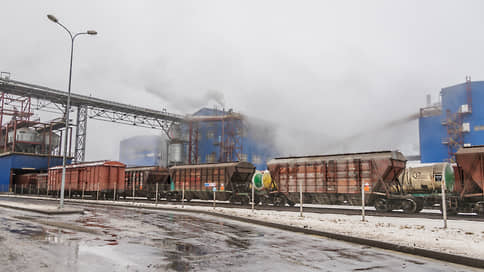Do not rush to land – Newspaper Kommersant No. 184 (7385) dated 10/05/2022
[ad_1]

The economies of Europe and Central Asia will shrink by 0.2% this year following the fall in GDP in Russia, Ukraine, Belarus and Moldova, follows from the regional forecast of the World Bank. The assessment for Russia has been improved compared to the June forecast – now the decline is expected at 4.5%, but the recession will be longer: next year, amid restrictions on energy supplies and sanctions, the decline could be 3.6%.
GDP in Europe and Central Asia will shrink by 0.2% this year due to the conflict in Ukraine, next year the growth will be only 0.3%, according to the updated World Bank regional forecast. In 2021, growth was 6.6%, excluding Russia and Ukraine, growth this year could be 4.1% (only two more countries will face a reduction in GDP – Belarus and Moldova, while the highest growth – by 8.8% – expected in Georgia). In quarterly terms, in the second quarter, regional GDP, according to the WB, decreased by 6% compared to the first. In the event of an escalation, the decline could be even more pronounced, the bank warns.
Global inflation, meanwhile, reached 9.3% in annual terms by July, the highest level since 2008, in the region the rate accelerated to 14.5% (including core inflation to 15.6%). The key risk for Europe remains a further rise in energy prices (see chart). According to the IMF, the stoppage of gas supplies from Russia will lead to a decrease in GDP by 1-2 percentage points next year, according to OECD calculations – by 1.25 percentage points, with inflation rising by 1.5 percentage points. The forecast also provides for growth interest rates of the US Federal Reserve and the ECB to 4.6% and 2.7% by March next year.
The forecast for Russia for 2022 has been improved – the decline is estimated at 4.5% (4.4 percentage points better than the June estimate), for the next year the estimate, on the contrary, worsened by 1.6 percentage points, to minus 3.6 %. In 2024, the Russian economy is expected to return to growth at the level of 1.6%. It should be noted that the Focus Economics consensus forecast based on a survey of international analysts for the Russian Federation on Tuesday has also been revised – it assumes a decline in GDP this year by 5.9%, next – by 3.3% (it was a fall of 7% and 3 % respectively).
According to the World Bank, fiscal support of 3% of GDP has contributed to reducing the recession this year, but high uncertainty is holding back investment, and falling real wages are holding back consumption.
Next year, the decline will be associated with the full entry into force of European embargoes on the supply of Russian oil and petroleum products, and growth incentives will become even weaker. The impact of sanctions will lead to a reduction in industrial production by 3%, in the event of a successful reorientation of Europe to gas supplies from other countries, the export earnings of the Russian Federation will decrease, and a significant part of the gas infrastructure will be de facto frozen, the WB predicts. This will also reduce the possibilities for balancing the budget – this year, the drop in non-oil and gas revenues was accompanied by an increase in revenues from exports of energy resources. In the long term, problems with technology transfer and migration will be key factors in reducing potential growth, the bank believes.
In Ukraine, a possible decline in GDP this year is estimated at 35% (this estimate was also improved by 10.1 percentage points), followed by growth of 3.3% and 4.1% in 2023-2024. About a third of the country’s population is faced with the need to move, while the restoration of infrastructure will require at least $ 349 billion – this estimate is 1.5 times the country’s GDP in 2021. The destruction from the conflict is estimated at $141 billion, with more than 40% of the losses occurring in residential buildings. The poverty rate this year, based on $6.85 per person per day, could rise from 5.5% in 2021 to 25% this year.
[ad_2]
Source link






